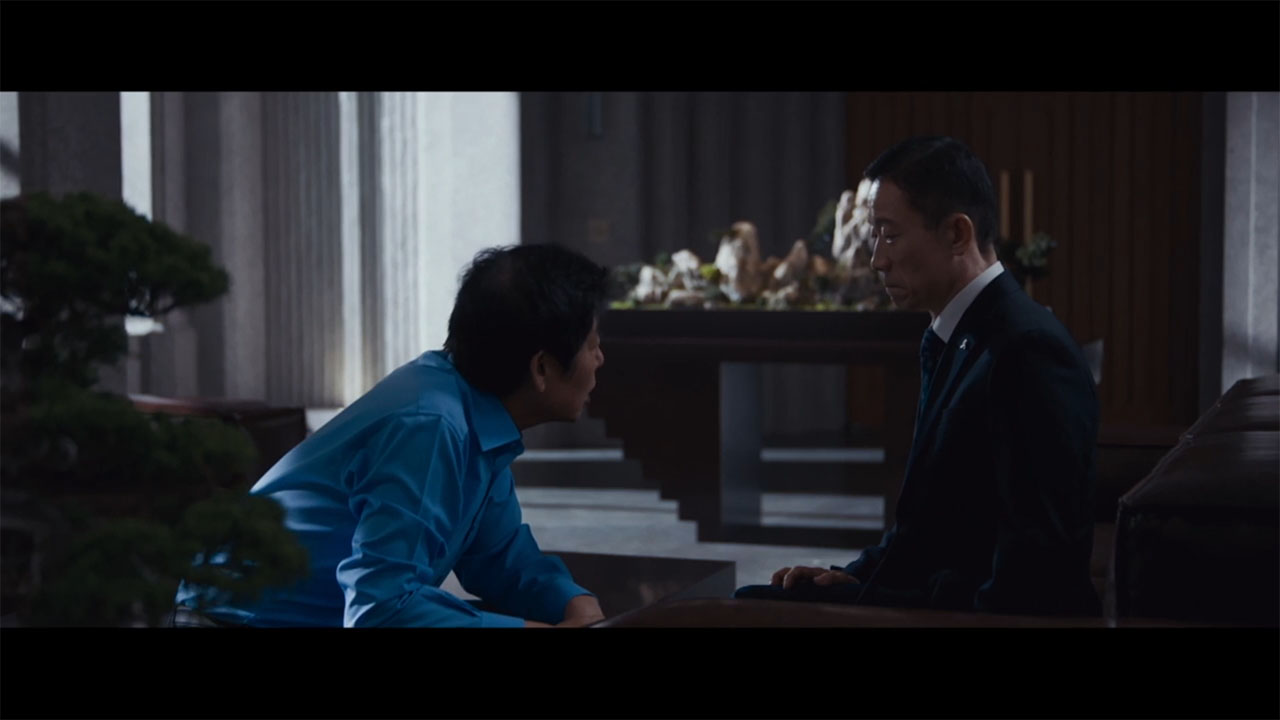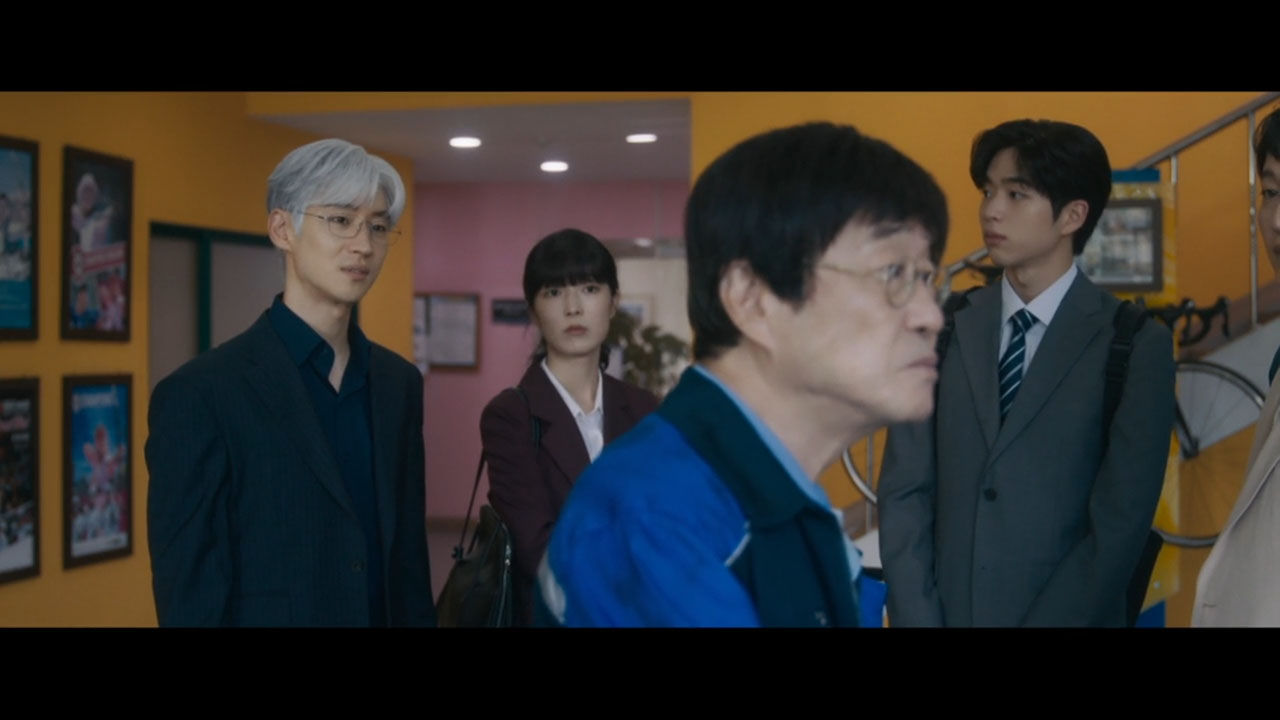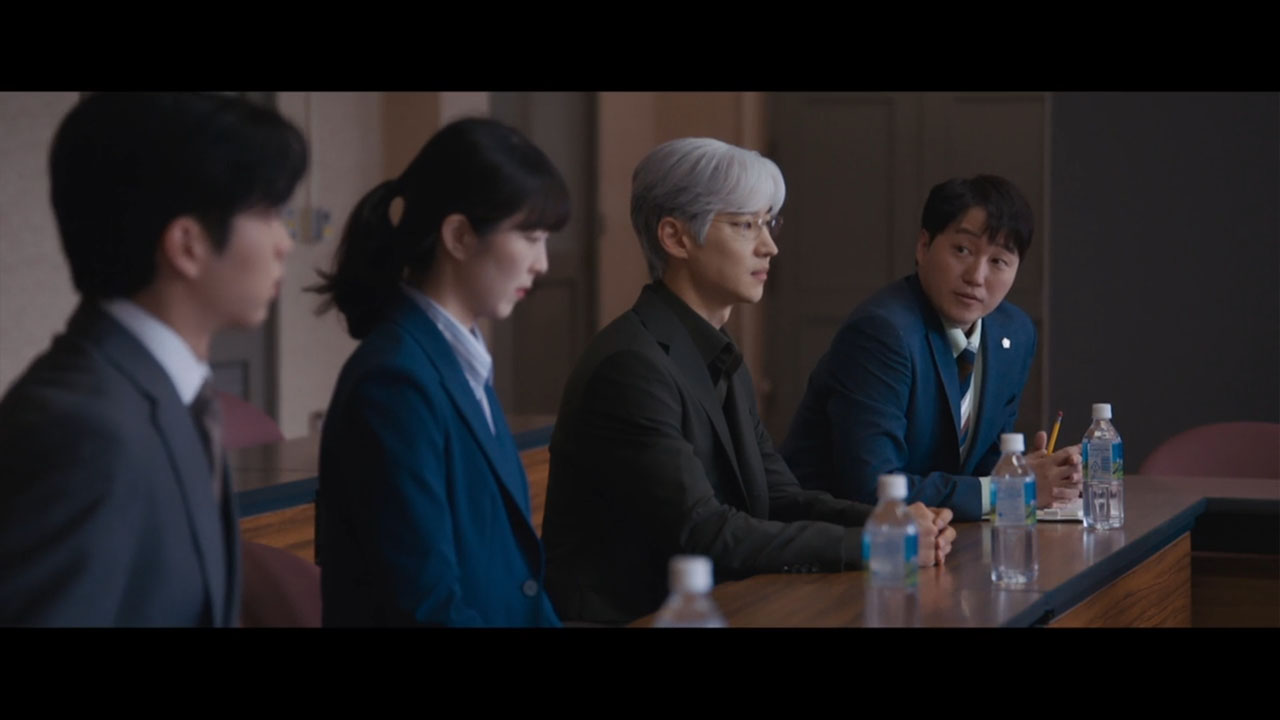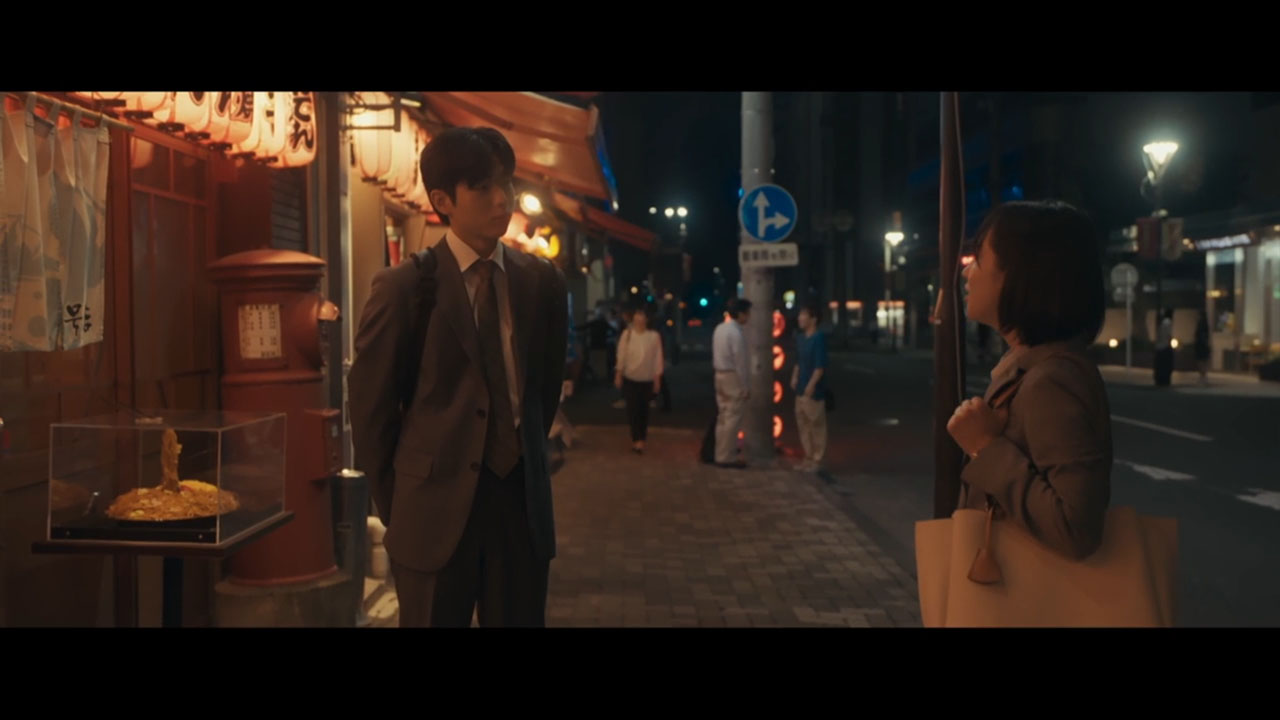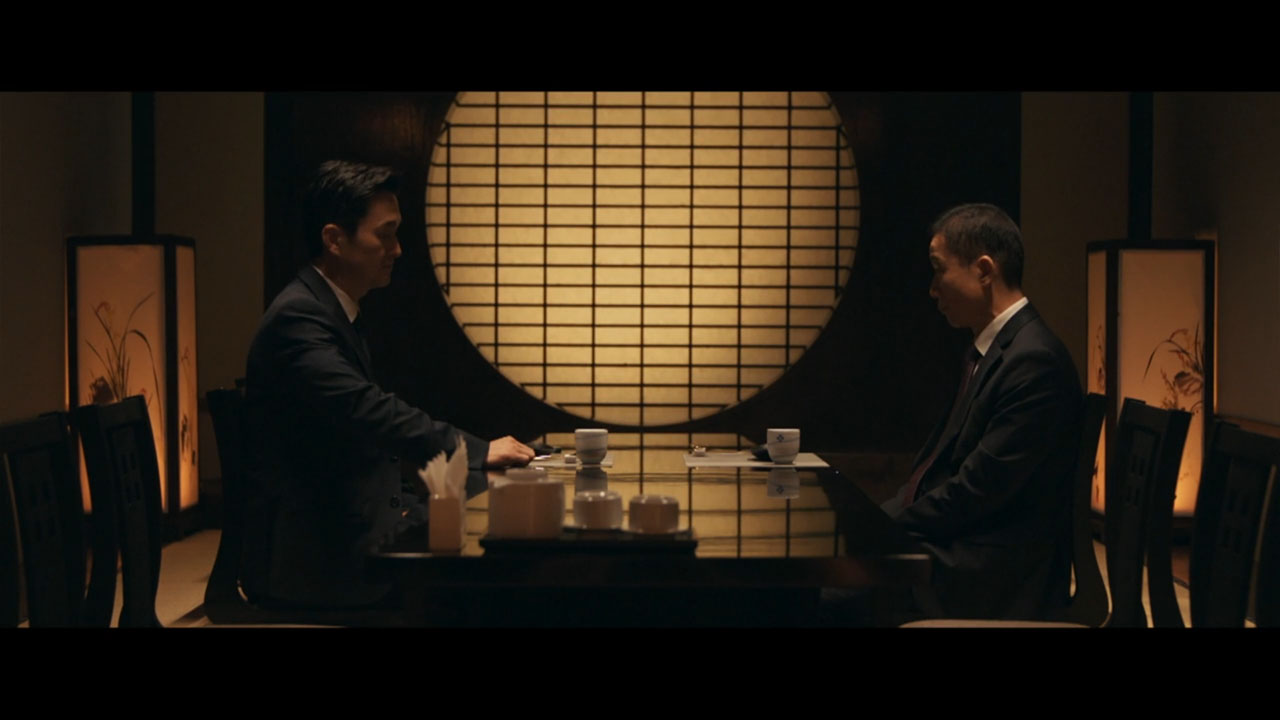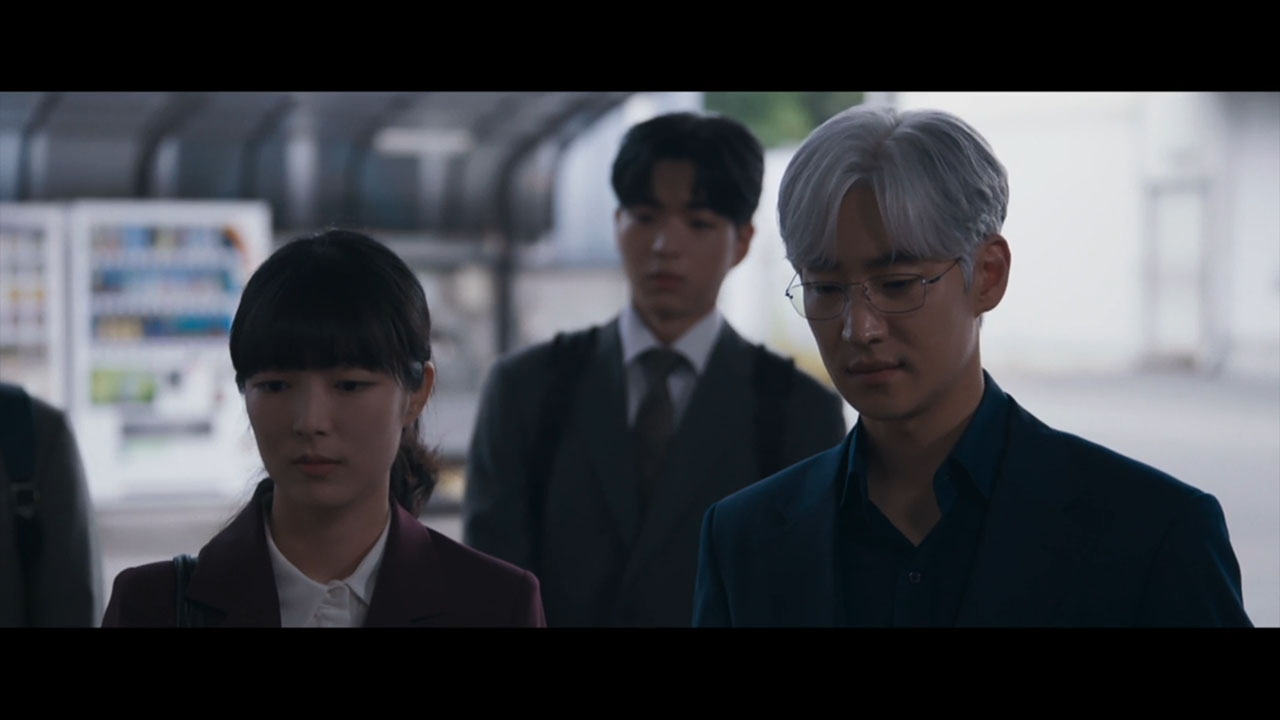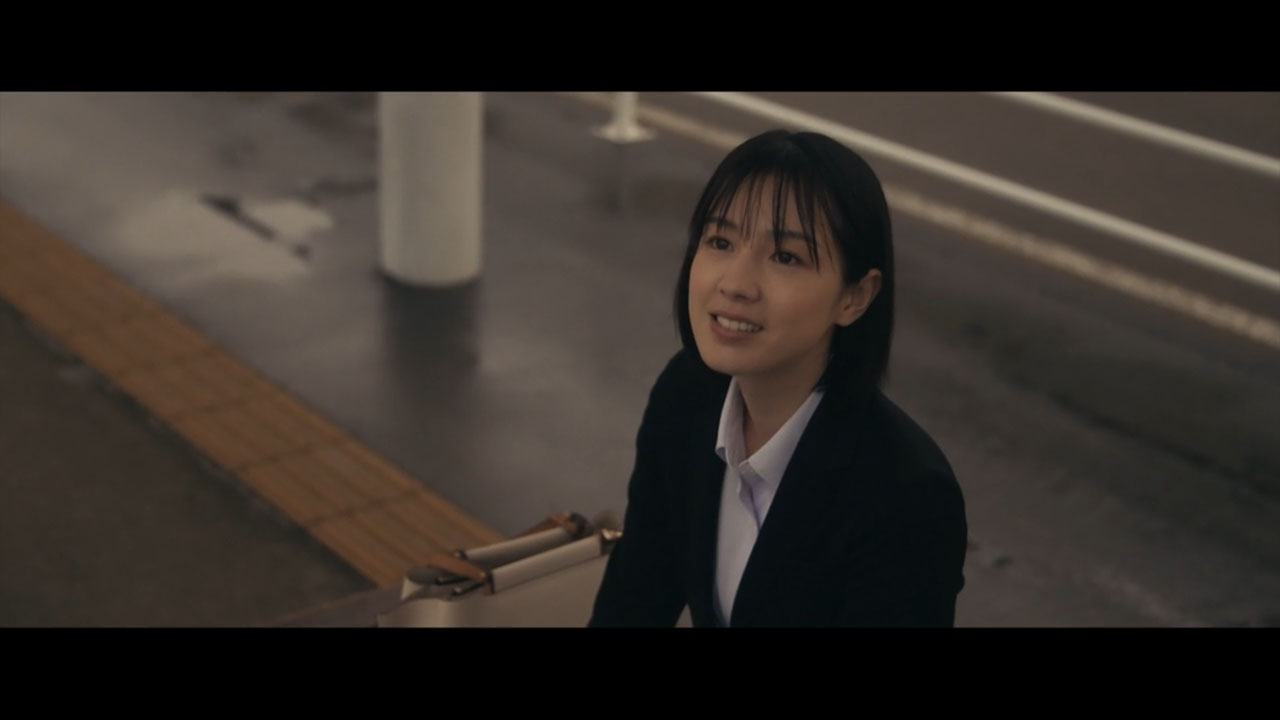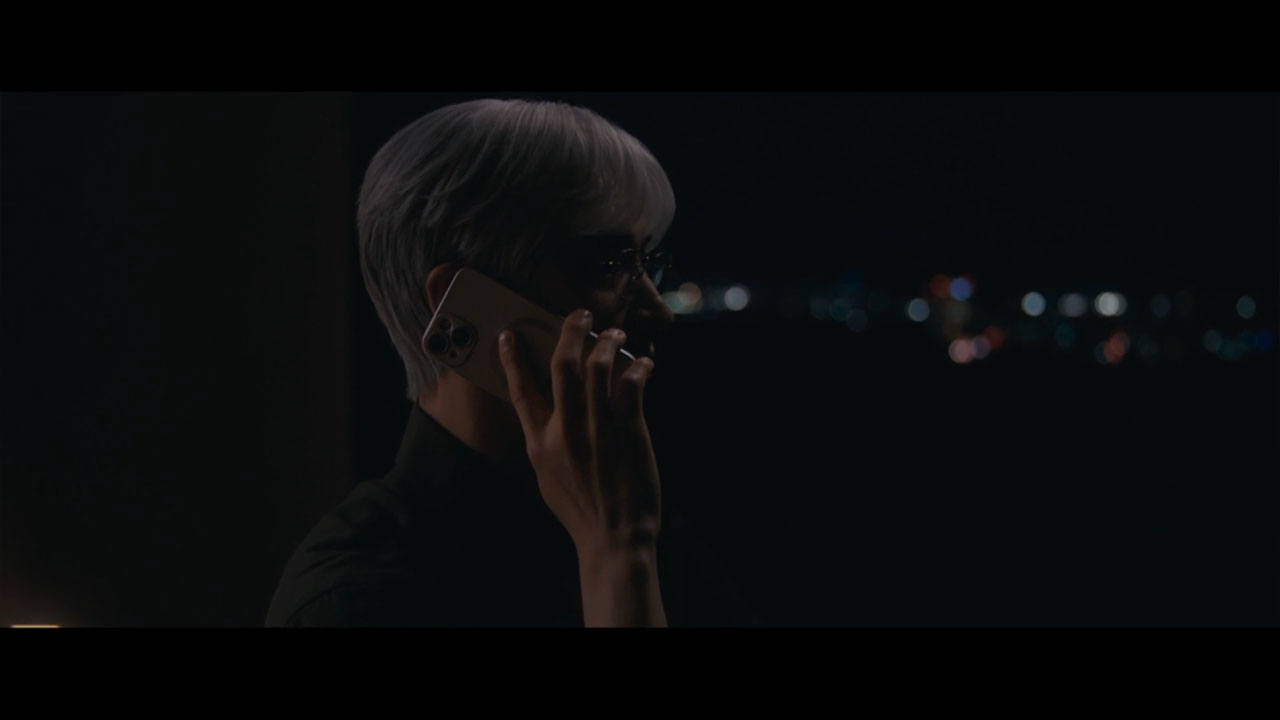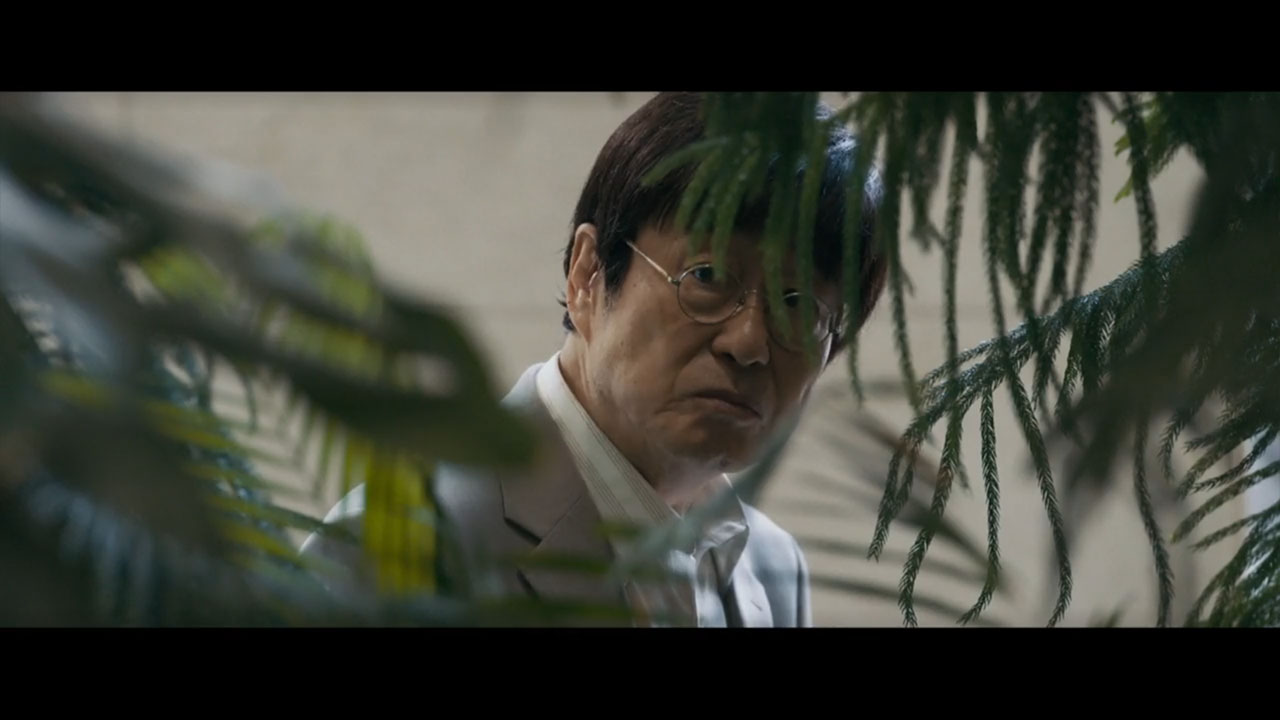The Art of Negotiation: Episodes 5-6 » Dramabeans
The Art of Negotiation: Episodes 5-6
by lovepark
The M&A team goes abroad this week to complete another deal, and the deadline is fast approaching. Cultural differences and past histories complicate their upcoming contract battle, and back home, the war continues to brew as both sides prepare to attack and defend their seats of power.
EPISODES 5-6
The show was not lying when it called M&A a war with no weapons. The political factions, bickering generals, and strategic confrontations make it akin to a sageuk – as others have astutely mentioned – but instead of a bloody battlefield, the story focuses on those in power vying for more. It’s an intense character study as well as a glimpse into the social aspect of capitalism, and though I wouldn’t call the writing groundbreaking, it is engaging in a quiet, subdued manner.
The article from last week by the vindictive journalist drops Sanin’s stocks to 99,000 won, and Chairman Song is out for blood. He calls over CCO Lee who is responsible for IR (investor relations) and CEO Oh of the leisure department which handles hotels, overseas resorts, and the current “hot seat” company Wind. During Covid-19, CFO Ha bought the bicycle manufacturing company which CCO Lee missed the momentum to list during the craze, and now their missteps have caused this current predicament.
When the chairman scolds CEO Oh to take responsibility, he is understandably peeved about this perceived injustice since he neither bought nor operates Wind. However, unless they raise the stocks back up to 100,000 won within four weeks, Samoel can demand a put option, risking the chairman’s position. As of right now, Sanin can either give up on Wind (which is what CFO Ha suggests) or they can list it (which is what Ju-no pursues). Neither options are guaranteed, so Chairman Song tells both sides to produce results since his head is on the line.
The current problem with Wind – or the bicycle market, in general – is that the government started a free ride-share program, making it a fool’s errand to compete against it. As a result, Ju-no switches tactics to target the high-end market and meets up with CEO Park of Wind. The company originally made archery bows, but with their knowledge of carbon steel, added bicycles to their repertoire.
In order to increase revenue, Ju-no hopes to bait their aluminum bike consumer base with their lowest priced carbon steel one, but for this strategy to work, they need to lower the cost by another million won which CEO Park deems infeasible under their current operations. On the other hand, if they could mass produce the model, then the price could be matched. The only issue with this is that Wind buys their gears from Japanese supplier Shimiz, and their OEM contract leaves them with only a week to negotiate terms.
With no time to waste, Ju-no and his team fly over to Shizuoka, and as soon as they land, the fight begins. While our M&A experts deftly avoid prying questions and banter with coy precision, the youngest on both sides are stranded due to an unforeseen limousine accident and come separately from the group. Unaware of the verbal gymnastics his seniors are employing, Jin-soo innocently answers his host HIROSE HARUKA (Hitomi Miyauchi) and gives away their deadline date.
After a perfunctory first meeting where Shimiz proposes a zero percent discount rate for Wind’s increased order, the two sides take a break, and Hirose offers to show their guests around the city. While it is a kind gesture, the tour has the added effect of impeding our heroes’ strategizing time, but even with the tourist traps, foot baths, and multi-course meal, the team finds a way to do their work.
For their plan to succeed, Min-jung calculates that they need a 30% discount rate at the minimum, which Ju-no thinks should be easy enough to negotiate since the other side does not know their deadline date. As soon as Jin-soo hears this, he pales and apologizes to the others since he revealed that crucial detail earlier. While their youngest’s mistake puts them at a disadvantage, Ju-no points out that this information is a double-edged sword which they could use against Shimiz if wielded properly.
Taking a page out of Shimiz’s strategy book, team Sanin sends over Jin-soo to act as a spy. Having built a rapport with Hirose, Jin-soo bonds with her over their shared alma mater and current struggles as young adults. In turn, she opens up to him, feeling bad after overhearing him get reprimanded by his seniors (Soon-young and Min-jung yelled at him publicly as part of their ruse), and reveals her company’s situation.
The information Jin-soo gleans from Hirose discloses exactly what the team leader of Shimiz needs to come to the table, so Ju-no asks for a private meeting to discuss contract terms. He offers Shimiz a 20% deposit over the typical 10% and will pay it this month rather than the next. These two specific conditions would allow the Shimiz leader to hit his quota and put him on the transfer list to Tokyo which is what he is truly after.
Ju-no, though, is not offering all these incentives for free and asks to cancel their original order so they can place 10,001 gears, instead. That is exactly one above the threshold to receive a 50% discount, and while a business deal like this would typically ruin negotiations, Ju-no knows that Shimiz is aware of their deadline and pressures him to accept quickly or else lose this particular offer. With the clock ticking, the other party agrees.
Since this new contract now requires more money from Wind, Ju-no asks CEO Park to receive a short-term loan from Sanin, but rather than approach CFO Ha, our white-hair expert instructs the CEO to meet with the chairman directly. Thus, CEO Park hides behind plants in the company lobby to “coincidentally” bump into the chairman and asks for the funds. Of course, word gets to the CFO who is annoyed by the clear disrespect and begins his own counterattack.
CFO Ha gathers his side for a meeting and invites CEO Oh to join. At first, the CEO huffs at the CFO’s brazen attempt to tempt him, but the others convince him to stay and listen. Even CEO Kim – once a member of CCO Lee’s side – is now sharing drinks at the enemy’s table, so what good does loyalty do when your job is at risk?
The CFO suggests holding a board meeting to shift the blame to CCO Lee or, at the very least, Ju-no. He mentions the Jumbo Pharmaceutical incident and tells the others that Ju-no borrowed his older brother’s name to buy stocks. However, a quick flashback hints at a different story, insinuating that his brother was the one trying to manipulate the market much to Ju-no’s disapproval.
Back in Japan, Sanin and Shimiz gather for the final sale, but at the last minute, the production manager refuses to sign. He says that an untrustworthy company like Wind has already broken its promise once and is bound to break it again. Without his signature, the contract is void, but Ju-no and his team refuse to give up so easily. They head over to his factory to discuss things once more, and Ju-no notices a familiar looking piece of calligraphy hanging on the wall.
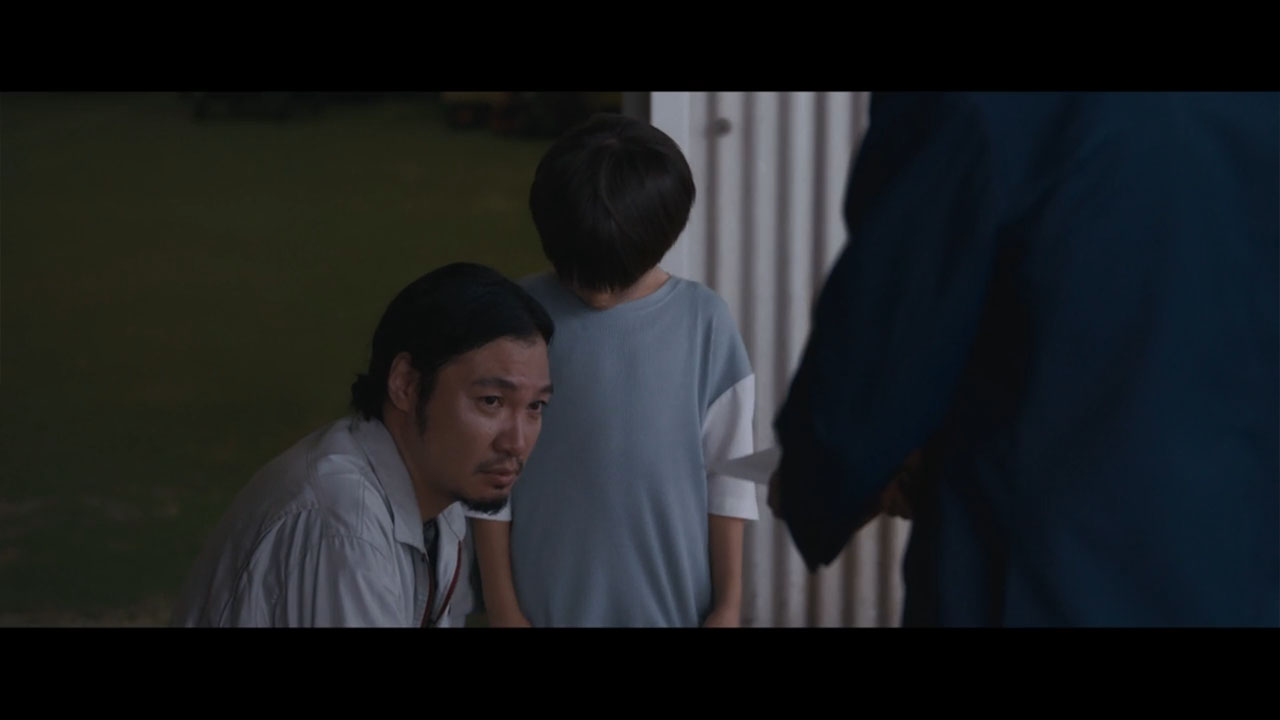
With only a day left before their departure, Ju-no makes a solo trip back to Korea to ask CEO Park for a favor. When Wind only manufactured bows, they bought out their competitor, and the son of that company’s CEO is the current production manager. The calligraphy displayed in the factory was actually gifted by CEO Park at the request of the old CEO, and Ju-no passes along a photo taken the day of the sale to the son.
The production manager bristles at the memory since he believes Wind destroyed his family’s company, but Ju-no tells him that he misunderstood his father’s intent. The calligraphy was meant for his son to uphold their family legacy while forging his own path, so what the production manager thought was their family’s loss was actually intended to be his new beginning. The letter from CEO Park confirms this, letting the son know that his father’s legacy lives on in their bows since the best remains the best.
Changing his stance on Wind, the production manager signs off on the contract, and Ju-no notifies CCO Lee of the good news. Since it is the weekend, however, he has not reported the sale elsewhere, and the CCO asks him to delay it since he has plans of his own in the works. With everything resolved for now, Hirose treats the team to one final meal, revealing that she knew about their spy plan all along. The real reason she shared everything with Jin-soo was because his naivety and thoughtfulness truly touched her, proving that sometimes earnest kindness can yield results even in this cutthroat environment.
Once Monday morning comes around, the directors gather for a board meeting, and CFO Ha calls for a vote to force CCO Lee to take responsibility for Wind’s failed listing. The CCO remains silent as he observes CEO Oh flip sides, while CFO Ha frowns at CEO Kim’s waffling. Then, all eyes turn as Ju-no walks into the room, and he informs the board about the successful contract as well as the news of their upcoming product – both of which CCO Lee timed perfectly to be announced at this moment.
It becomes obvious to everyone present that Wind will be listed, and the CCO leaves while CEO Oh desperately chases after him to get back into his good graces. Alas, his true colors were shown in that room today, and CCO Lee tells him that it may be time to resign if he is willing to blame others so easily. (Our baduk ahjussi isn’t the pushover he pretends to be!)
Another major crisis is averted once again thanks to Ju-no and his competent team, but trouble seems to find them at every corner. This time, the chairman himself might have caused a stir, which means Ju-no may have to put his other plans – the real reason for his return – on hold and clean up this Sanin mess first.
The Art of Negotiation evokes clear restraint (besides the music, but it’s improved!), and this compelling sense of control in the directing, writing, and acting sets the tone of the show that feels almost rare for a Korean drama. Despite the manipulations, power plays, and emotional story beats, this relative lack of fanfare and devoted appreciation for the mundane creates a tight pace that feels antithetical to the show’s stillness and deliberate pauses. The lack of urgency actually draws the audience’s attention, and this natural intimacy the director shapes along with a script that tends to tell rather than show forces the viewers to match its pace rather than their own. It’s almost strange how tense and engaging the show is at times while I cheer at every foiled plan and well-timed reveal because on paper, I feel like it shouldn’t work, but somehow it does.
Though the writing does favor monologues to explain all the complicated business dealings (which I actually appreciate as someone with no experience in this field), I think the real strength of this script is in the unspoken truths. The way CFO Ha casually lies and exaggerates his importance to secure his position even amongst his own crew, the CCO’s apparent apathy that belies his own ambitions, or Ju-no’s inability (or refusal) to deceive and rather highlight parts of the truth to get his way – it’s these more subtle aspects of their characterizations that add to the overall narrative. Even the supporting characters that only appear for the week are given this level of detail, which is why, despite my personal distaste for episodic stories, this particular show feels thoughtful and meticulous. It’s not just the main characters shuffling along random plot threads but a weekly expansion of their universe that includes both old and new storylines. It’s hard to pinpoint exactly what draws me into the show without making it sound drab, but it really is this unique blend of ordinary and monumental that makes it so enjoyable.
RELATED POSTS

